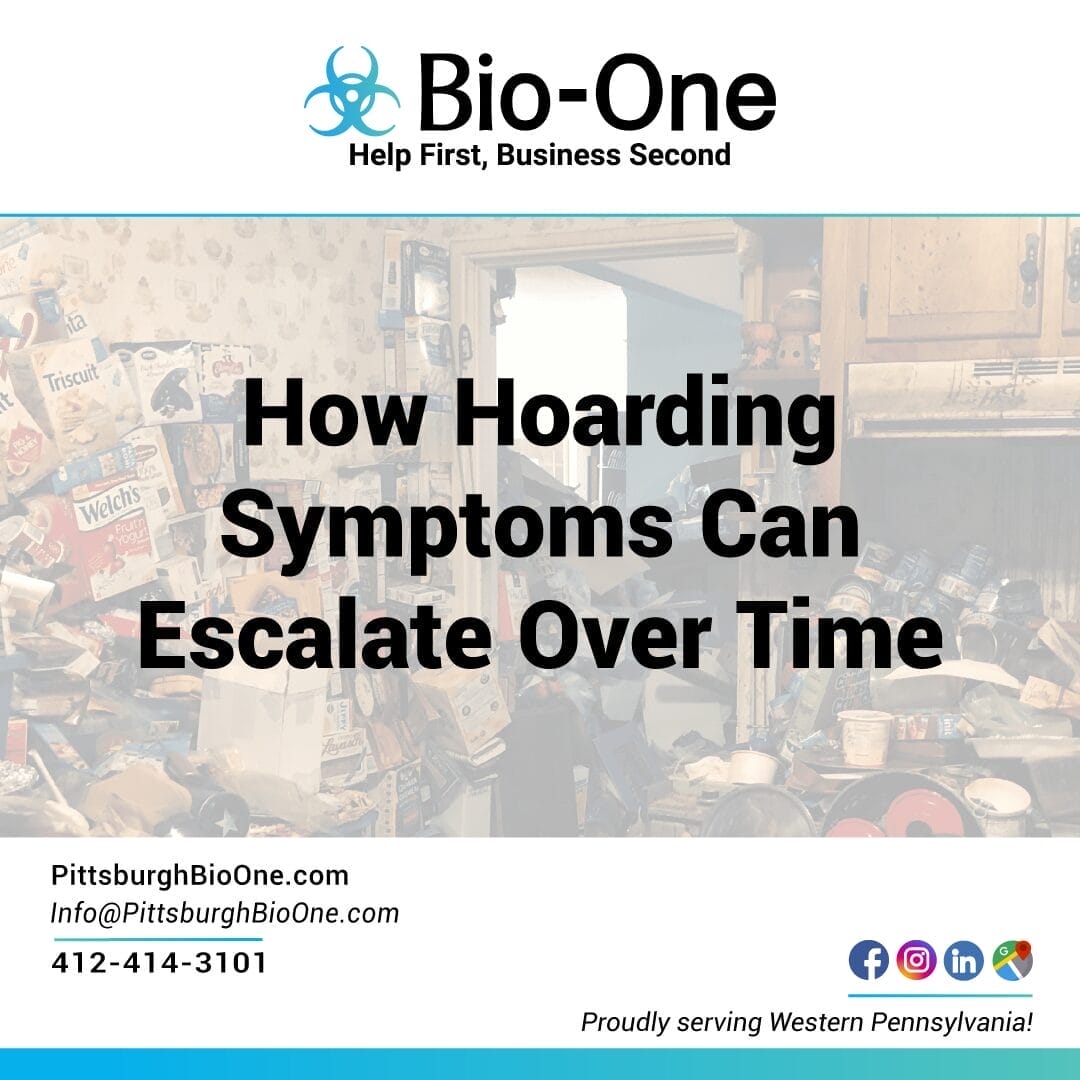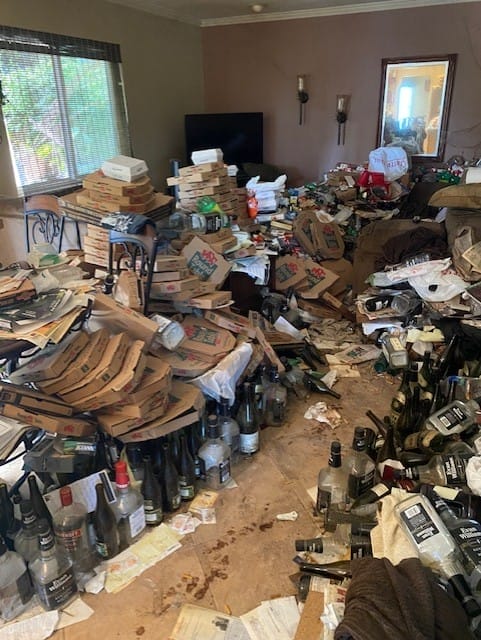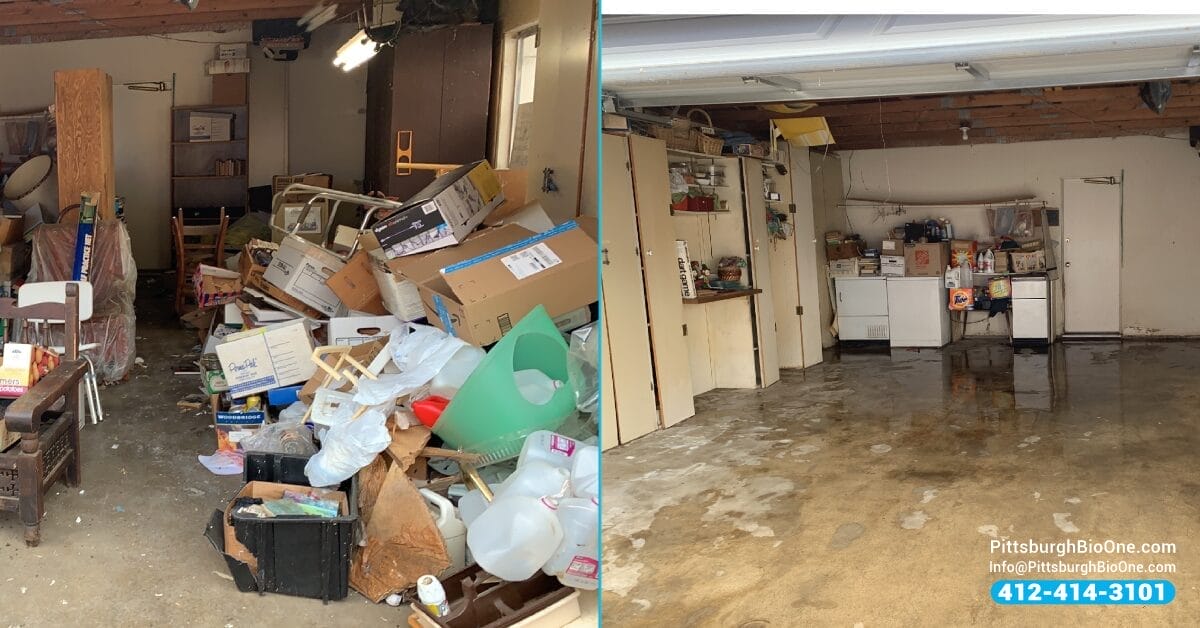
Hoarding is a disorder that prevents individuals from discarding or parting with possessions, resulting in the accumulation of clutter in their homes or living spaces. Hoarding symptoms can start small, with individuals collecting items of sentimental value or seemingly functional objects. However, these symptoms can escalate over time, leading to severe health concerns, both physical and mental.
In this blog post, we'll take a closer look at how hoarding symptoms can progress over time and provide some examples of how hoarding can get progressively worse. We'll also discuss the importance of seeking professional help for hoarding, including mental health assessments and hoarding cleanup services.

Hoarding symptoms can begin with small items, such as coins or books, but the accumulation of clutter can quickly escalate into something much larger. Individuals with hoarding tendencies may begin to feel overwhelmed by the amount of clutter they've collected, which ultimately makes them feel anxious or depressed. These feelings turn into a lack of motivation or energy to clean, further exacerbating the situation.
For example, Sarah was a former teacher who loved collecting children's books and toys. She would hang onto every art project or school assignment her students gave her, believing they held a special meaning. However, over time, her collection grew to an unmanageable amount, cluttering up every corner of her small apartment. Sarah began to feel anxious when she walked into her cramped home and eventually stopped inviting friends over altogether.
As the clutter accumulates, hoarding symptoms can progress to the point where it becomes impossible to navigate through the home safely. Hallways and doorways may become blocked, and items may start to pile up on beds or tables, making them unusable. It's not uncommon for individuals with hoarding tendencies to start sleeping on a couch or the floor due to the piles of clutter taking over their bed.

For instance, Tom was a retired mechanic who collected cars and tools. As time passed, he struggled to keep up with the maintenance and cleaning of his cars, resulting in them deteriorating. Instead of fixing what was broken, he began buying new cars to replace them. In turn, this created a cycle where he had too many cars to store in his garage, forcing him to park them in his driveway. Soon his driveway became blocked with cars, and he could no longer use his garage to store his tools.
Over time, as the hoarding symptoms become more severe, individuals may experience health problems due to the clutter in their homes. For example, mold and mildew can grow on damp surfaces hidden under piles of clothing or paper, leading to respiratory problems or other health concerns. Additionally, the clutter can create tripping hazards, leading to falls or other injuries.
Hoarding can begin with seemingly innocent collections. However, as symptoms escalate over time, individuals can experience severe health concerns and an inability to navigate through their living space safely. Seeking professional help for hoarding, from mental health assessments to hoarding cleanup services, can make all the difference in managing the situation.
Bio-One of Pittsburgh is the leading hoarding cleanup company in Western Pennsylvania. Our team understands that hoarding is a sensitive issue and works closely with individuals and their families to create a plan that fits their needs and budget. If you or someone you know is struggling with hoarding symptoms, don't wait to seek professional help. Bio-One is here to help, and we're just a phone call or email away!
